After Wind, did Above the Cliff catch the spy film?
Text | Li Qingli
Edit | Zhang Youfa
At the premiere of "Above the Cliff", director Gao Qunshu said after watching the movie: "After the wind, there are legends."
This should be understood in combination with another spy war classic, The Wind. In 2009, The Wind, which was jointly directed by Gao Qunshu and Chen Guofu, was released. At that time, there was a slogan on the poster: "After the wind, there is no legend in the world."
After more than ten years, Wind still sits firmly on the "ceiling" of domestic spy films. In the years after 2009, spy films such as Qiu Xi, Dongfeng Rain and Listener appeared in the market one after another, but the market performance and word-of-mouth were not as good as Wind.
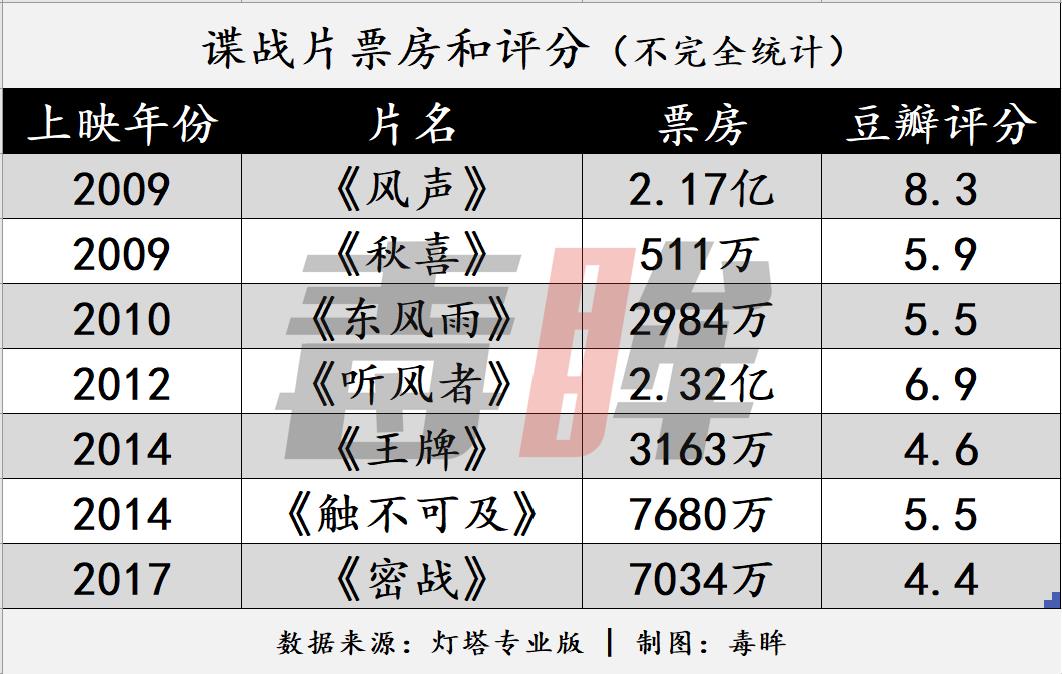
In 2017, after The Secret War starring Aaron Kwok, Zhao Liying and Hans Zhang was released, there were no spy war films that attracted much attention in recent years.
Until this year, Zhang Yimou’s On the Cliff was released, which broke the silence of spy films for many years. Although there are as many as 15 films scheduled for May 1st, Above the Cliff still has enough attention. On the third day of the holiday, through good reputation, My Love was overtaken to become a one-day box office champion.
As of the deadline, "Above the Cliff" has accumulated 500 million box office in 6 days, and Douban scored 7.7 points, which is the highest score among all released films on May 1.
As a representative of the fifth generation of directors, Zhang Yimou, 70, still has a creative desire beyond that of his contemporaries. In 2020, he shot three different types of works by One Second, Rock-solid and Above the Cliff. Among them, "Above the Cliff" is the first film directed by Zhang Yimou with the theme of "spy war".
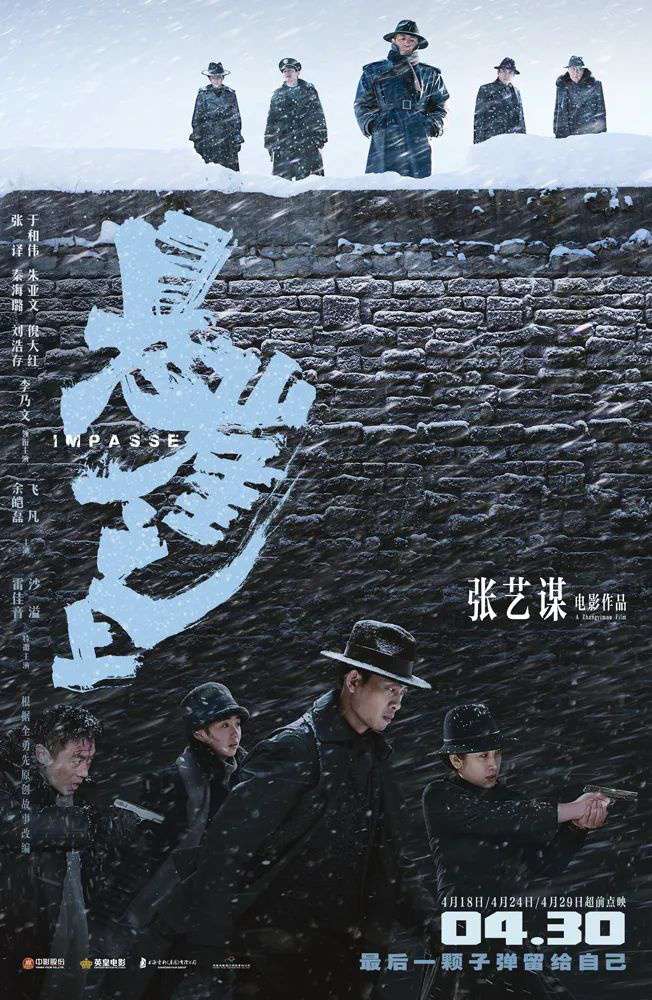
Although spy war movies are rare in the market in recent years. However, spy war dramas have been emerging one after another, and there have been many excellent works such as Latency, No War in Peiping, Red and Pretender. It can be said that Chinese audiences are no strangers to spy war works.
The release of "Above the Cliff" has re-filled the blank of spy films. Can it surpass The Wind and become the new ceiling of spy war movies?
Seventeen-year period: anti-special film
The predecessor of "spy film" is "anti-feature film".
In 1949, Northeast Film Studio filmed China’s first anti-feature film Invisible Front. This film tells the story of the struggle between the new China police and the latent Kuomintang agents after the liberation of Northeast China.
In the early stage of the film’s creation, director and screenwriter Yi Ming personally went to the shenyang military area command War Criminals Management Office for in-depth investigation and interviewed Guan Mengling, a detained senior military spy. From several conversations with Guan Mengling, Yi Ming learned in detail how real spies live and how to perform their tasks.
The two even simulated the conversation scene of the spy meeting in prison, which later became a classic fragment in Invisible Front. From Guan Mengling, Yiming got the first-hand information of the military spy, which greatly helped the film creation.
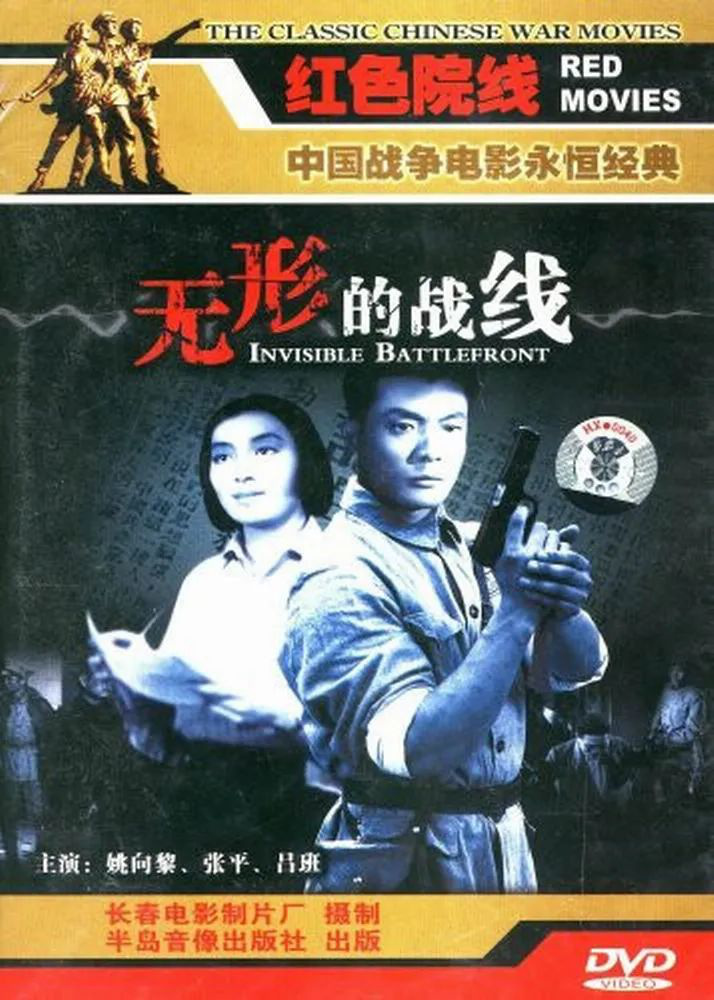
At the end of the film Invisible Front, a quotation from Chairman Mao appeared:"After the enemies with guns are destroyed, the enemies without guns still exist, and they are bound to fight to the death with us. We must never despise these enemies."This sentence not only points out the central idea of the film, but also shows the main creative idea of the anti-special film during the whole seventeen years.
The "seventeen-year period" refers to the period from 1949 to 1966. The literature and film works in this period have a strong political color, and anti-feature films, as a kind of film type that undertakes political propaganda and education, have also been produced in large quantities during this period.
"Anti-spy", as its name implies, is to crack down on and eliminate enemy agents. In the early days of the founding of New China, the remnants of the Kuomintang lurked in the mainland, waiting for an opportunity to destroy it. In order to consolidate the new regime, "anti-special work" became the top priority. In this context, the concept of anti-feature film came into being.
After the success of Invisible Battlefield, classic anti-feature films such as Yangcheng Dark Whistle, Heroic Die Hard, Sentinel and Never-Gone Radio Wave appeared in China.
In 1950, the anti-feature film "People’s Palm" filmed by Shanghai Film Studio won the prize of the 7th Caviro Farley International Film Festival for freedom struggle in 1952.
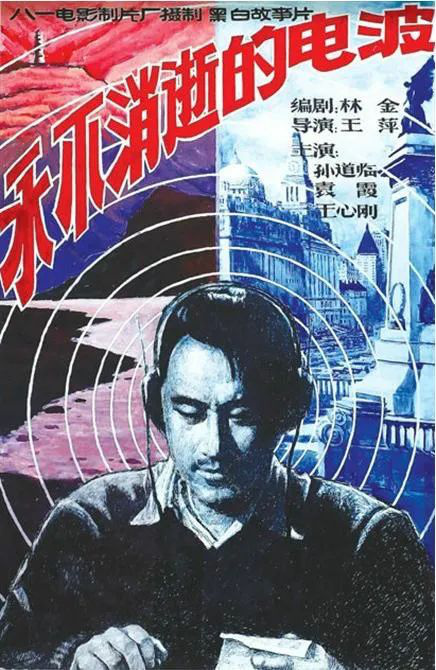
The story of the early anti-spy films is basically similar, which can be summarized as the discovery of enemy spy activities, our personnel launched an investigation or penetrated into the enemy’s interior for investigation, and the cunning enemy spy carried out anti-reconnaissance and further activities. After several investigations and anti-reconnaissance or contests, the enemy spy was finally captured and we won a great victory.
It is worth mentioning that in 1957, the movie "The Assault of Yangcheng" filmed by Haiyan Film Studio opened the prelude to the "Cantonese-style" spy war film by adapting "The First Major Case in Guangzhou".
In the public impression, the background of spy war is mostly in Peiping, Shanghai, Sichuan and Chongqing. In fact, in the early days of liberation, due to the special geographical location, the puppet troops and police in the Pearl River Delta often created explosions, and there were spies lurking in the surrounding areas, which became the key areas of anti-spy work and many major national cases occurred.
The appearance of "The Hidden Whistle of Yangcheng" has put Guangdong, a key area of anti-special work, on the big screen.
Anti-feature films have maintained a stable output in China, and a number of film studios, mainly Bayi Film Studio, Shanghai Film Studio and changchun film studio, have basically ensured that an anti-feature film can be released every year.
There are more and more films, and directors and screenwriters are also exploring new creative ideas, striving to integrate ideology with new entertainment elements. During the seventeen years, the anti-feature films not only inherited the mystery of detective films, but also incorporated elements such as love and horror. Besides telling the serious and tense revolutionary cause, let the audience feel the entertainment of the film.
Another noteworthy feature of the anti-feature films in this period is the female images created. Anti-feature films, as the main theme films, have created many "enchanting" female spy images.
At that time, in order to promote the heroic image of the rebels, the female role representing the just side often concealed the female characteristics and presented a masculine image. The female spy on the evil side will highlight female characteristics and shape the image of "beauty of snakes and scorpions".
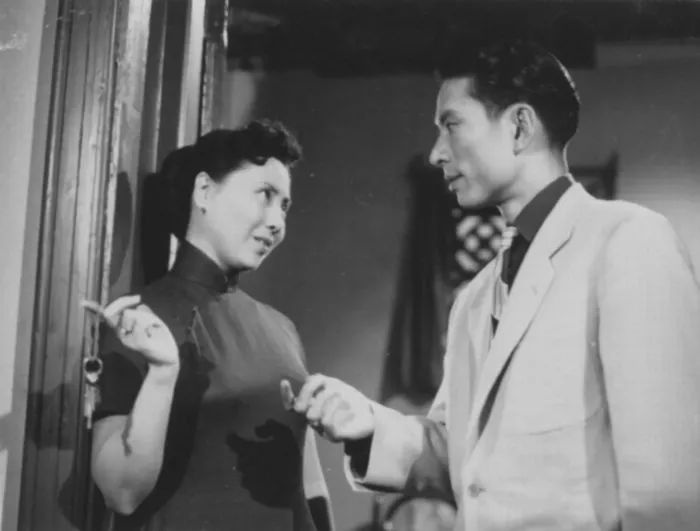
"Yangcheng Anshao" stills Source Douban
Bagu in "The Assault of Yangcheng" likes to wear dresses and cheongsam to decorate her figure. Alan in "Die Hard" will wear a waist belt to decorate her body curve even if she is wearing a Kuomintang military uniform. The image of female spy has become a symbol and a memory of a generation.
1980s and 1990s: From thrillers to spy movies.
After 1976, China’s society gradually transformed, and the entertainment function of movies was no longer concealed, and thrillers became one of the most popular types of movies.
The concept of "thriller" was first introduced from the Soviet literary creation theory in the 1950s. In a broad sense, thrillers include spy films, adventure films, detective films, adventure films, horror films and other films with thrilling content.
Anti-feature films in the new era highlight suspense and thriller elements, so when naming, "anti-feature films" and "thriller films" begin to "entangle". It is not uncommon to find the names of mixed types, such as anti-special feature films and anti-special thrillers, which are similar to thrillers.
The leading anti-feature film in this period was the Great Wall of the South China Sea, which was filmed by Bayi Film Studio in 1976. It tells the story of the struggle between the soldiers and civilians of Da Nangang and enemy agents on the eve of the National Day in 1962. This is also the film debut of the famous film actor Liu Xiaoqing.
In 1978, it was called "anti-special year" by fans. This year, there were many impressive films, such as Donggang Spy Shadow, Hunting Word No.99, Reef and Black Triangle. The filming and performance of these films made a great breakthrough compared with the previous anti-special films. For example, in Fighting Sharks, there are gun battles, racing and other film elements.
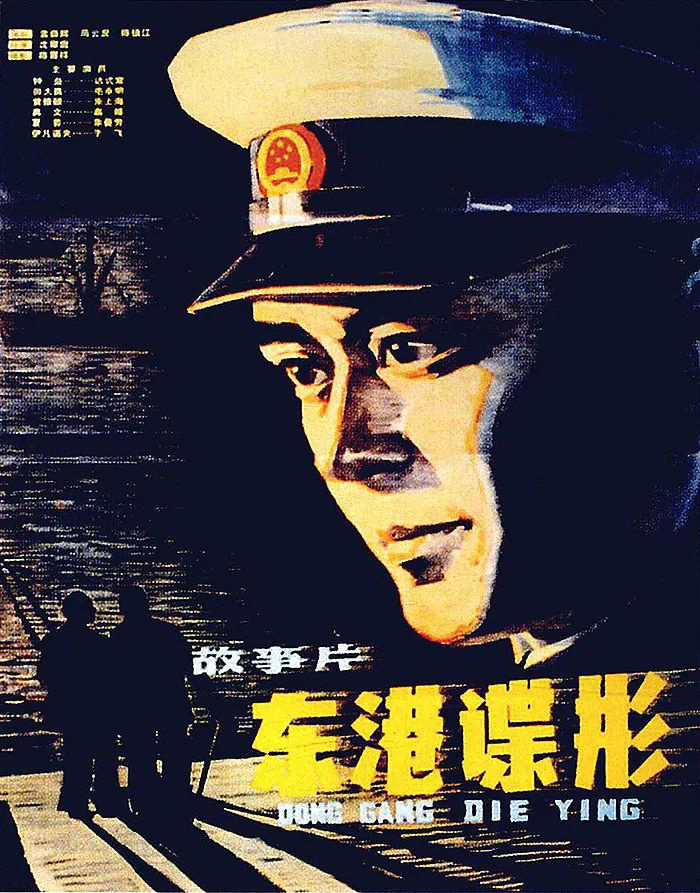
At this stage, based on the "seventeen-year period", the anti-feature film weakened the mission purpose, added elements such as thrills and suspense that catered to the market, and strengthened the entertainment function of the film.Therefore, in the film market at that time, such films with thrilling elements emerged one after another.
In 1979, changchun film studio filmed the classic film "Gunfire of the Secret Service". At the time of initial shooting, this film was positioned as a "non-key film" with a small theme by Changying Factory, resulting in a very limited budget for the crew. However, in order to restore the old Shanghai as much as possible, director Chang Yan tried to be true in the construction of streets, alleys and other scenes, especially the most important scene-Paramount Ballroom.
The film was filmed for nearly four months and finally finished. Chang Yan is still unforgettable. The scene of "Gunfire of the State Security Bureau" was reviewed in changchun film studio for the last time. The screening room of the film was full of people. After the film was broadcast, the audience stood up and applauded for a long time. This is a scene that has never been seen in Changying Factory.
That year, Gunfire from the Secret Service sold more than 1,000 copies nationwide. It is shown in more than 30 cinemas in Beijing at the same time, and it is broadcast 24 hours a day. After five screenings of Shougang’s "Gunshots of the Secrecy Bureau", it was still unable to meet the needs of employees, and three more screenings were made. Some viewers watched it eight times in a row. Nearly 30 years later, the film was also adapted into a TV series of the same name.
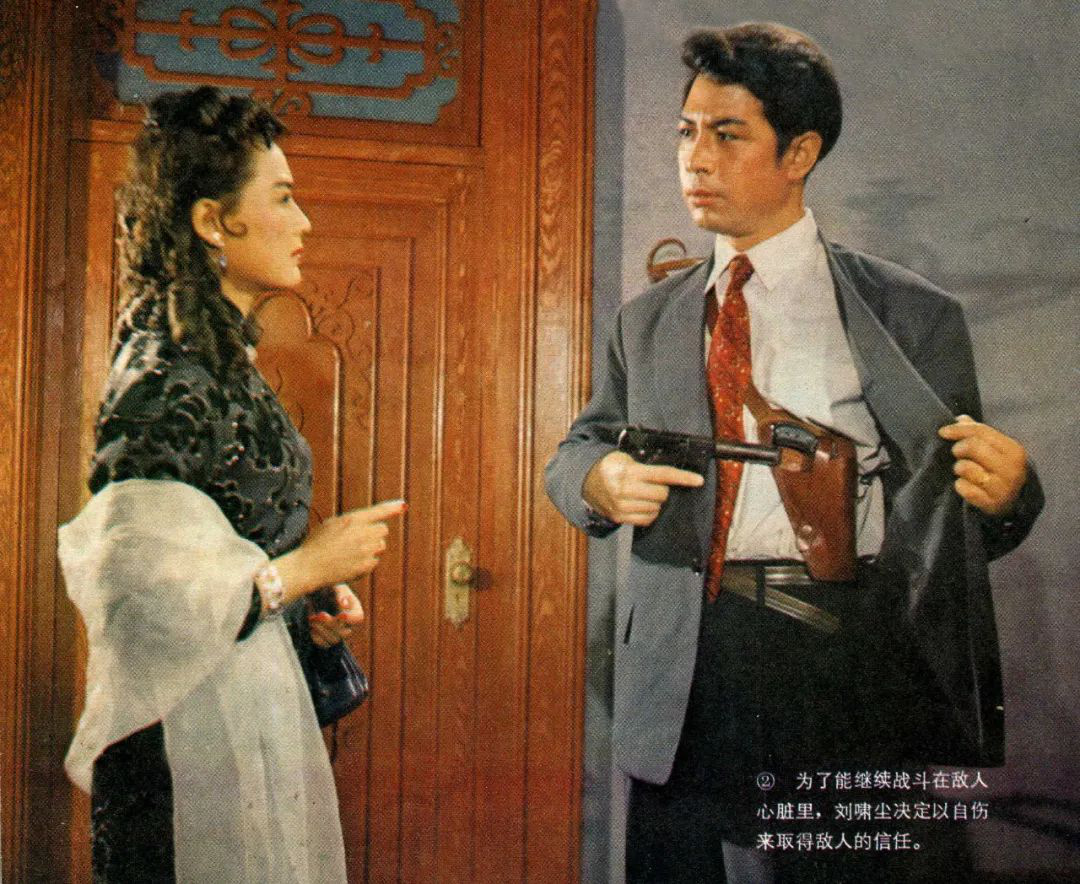
"Gunshots of the Secret Service" stills Source Douban
The following year, a classic color anti-feature film in China film history, Fog Boundless, was released, which was adapted from the script "A pair of embroidered shoes". In the previous narrative mode of anti-feature films, the director made a new typological attempt: at the beginning of the film, he used light and shadow modeling and music sound effects to create a spooky effect; Narratively, the protagonist constantly interspersed with memories when solving the case, enriching the monotonous linear narrative in the past.
Although there are many anti-special classics in this period, there are many low-quality anti-special thrillers on the market because of the increase in the overall number. Many scholars and fans expressed their disappointment with this kind of films, criticizing them as "divorced from life and the masses, which turned the audience off."
Therefore, in January, 1985, Film Art and the Foreign Film Research Office of China Film Association even held a "thriller film seminar" in Beijing.
Under the background of reform and opening up, domestic audiences have gradually come into contact with western films such as Hunting, Tragedy on the Nile, A Drop of Blood, Escape from Danger, and the audience’s eyes are becoming more and more harsh.Under the impact of its own homogenization and foreign blockbusters, domestic anti-feature films gradually entered a low tide period.
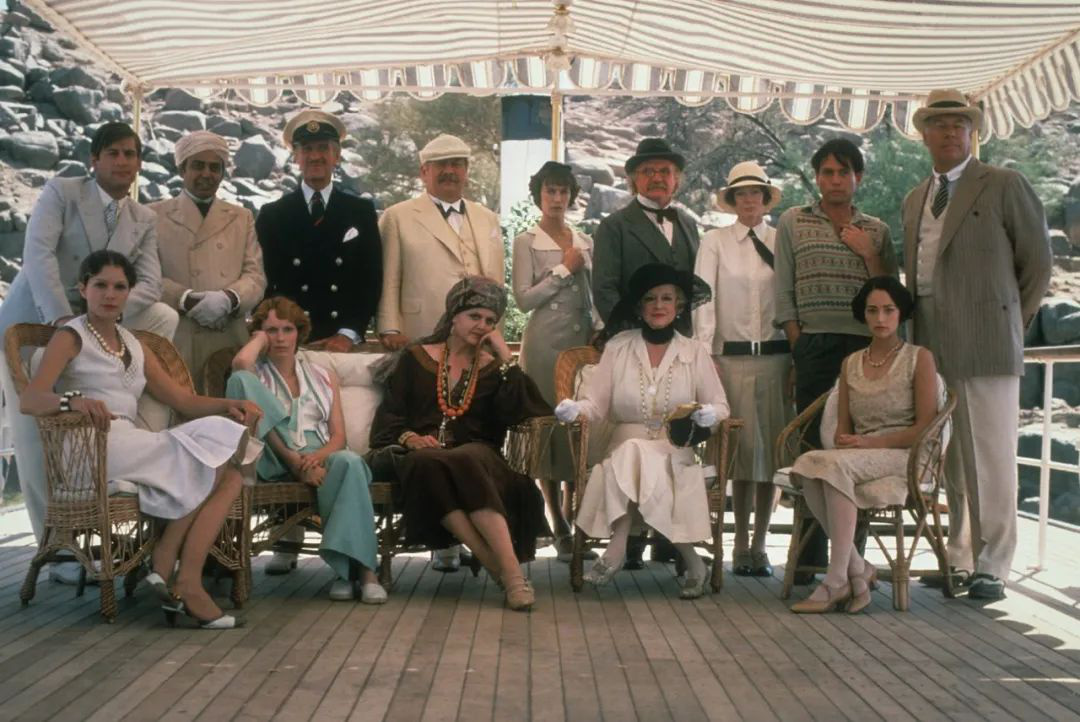
"The Massacre on the Nile" stills Source Douban
However, "anti-spy" film and television works have not disappeared, but with the gradual popularization of TV sets, they have gradually turned into "spy war dramas" with small screens.
The word "spy war" first appeared in the 1990s, when it was used to describe the intelligence competition in economic and military fields. The change of words further weakens the political color of this type, but pays more attention to the plot conflict brought about by the intelligence struggle.
In 1992, a 12-episode TV series "Cave 76" directed by Wang Yi was broadcast. In 1995, 20 episodes of the TV series "Wildfire, Spring Breeze, Fighting the Ancient City" based on the anti-special film of the same name were broadcast. In the same year, "No regrets" was broadcast. This drama is about the life and transformation of special agent Feng Jingbo. Because of its novel angle, the concept of "spy war drama" was refreshed.
In the 1990s, the spy war drama was as short as 15 episodes and as long as 25 episodes, with a compact plot. The spy war dramas in this period enriched the characters in the anti-spy films in the past, and gradually evolved from a single enemy spy to a "spy" of both sides.
In this stage of China’s video works, the protagonist of the spy war has changed his previous image of a great book, with weaknesses, desires and love-hate entanglements. For example, the public security bureau chief is not an invulnerable facebook character, but also gets sick; Investigators also have to face the censure and incomprehension of their families. ·
21st century: the breakthrough of spy films
In the 21st century, the main position of "spy war" works has further changed from big screen to small screen.
In 2002, CCTV prime-time broadcast an anti-spy TV series "Vow Silence" censored by the Ministry of National Security, which opened up a new road for spy war film and television dramas. Then, a pair of embroidered shoes, plum blossom archives and other dramas involved have mushroomed.
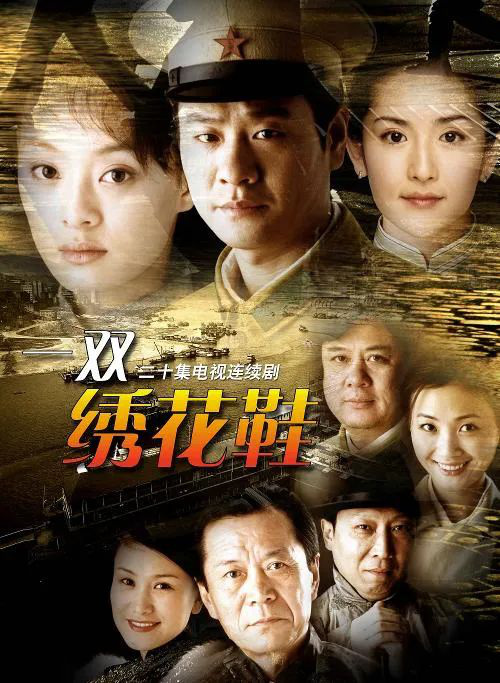
In 2004, the State Administration of Radio, Film and Television banned the broadcast of violent dramas in prime time, which provided a broader space for the spy war drama, a more intelligent drama type. The success of "The Vow of Silence" prompted many criminal investigation dramas and police dramas in mainland China to turn into spy war dramas. After that, spy war dramas flourished in mainland China in the past ten years.
According to incomplete statistics, in 2005 alone, more than 15 spy war dramas, such as State Secrets, The Woman Who Missed Military Regime, Secret Order 1949, were broadcast.
The spy war drama is in full swing, but there has never been a spy war film that can be played in the film market.
Until 2009, at the 60th anniversary of the founding of the People’s Republic of China, The Wind was born with the slogan "China’s first spy war giant system". This film, produced by Huayi Brothers, brings together many superstars such as Zhou Xun, Li Bingbing, Huang Xiaoming and Zhang Hanyu.
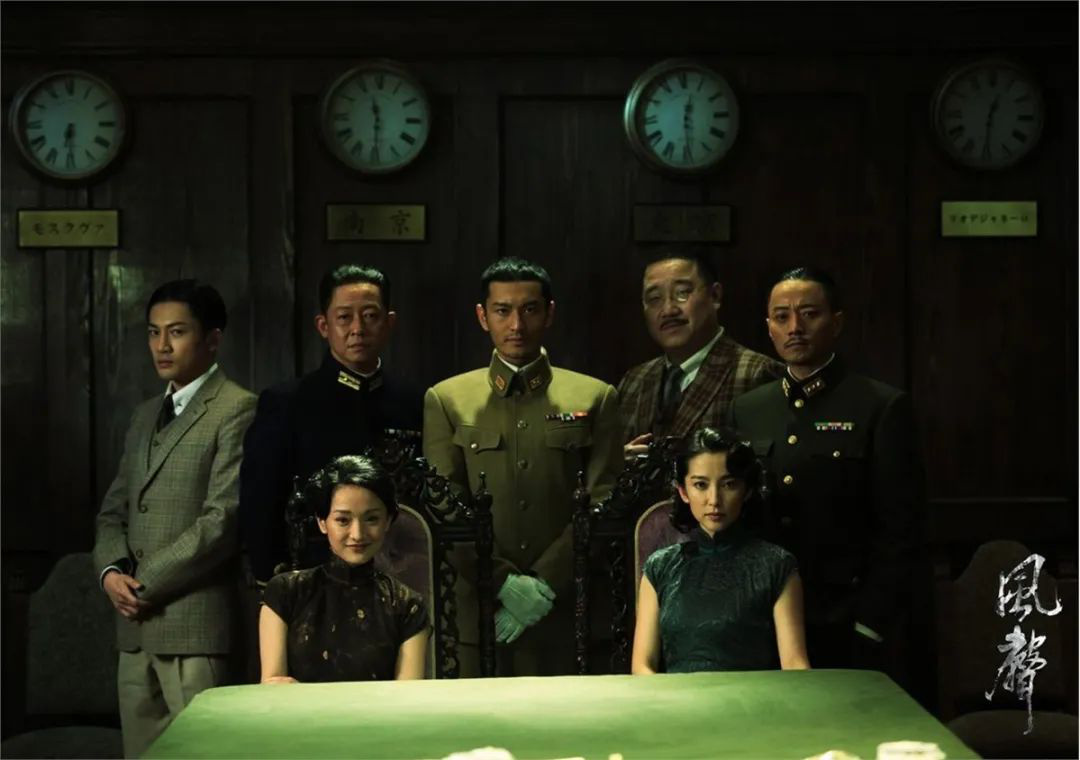
Wang Zhonglei also obviously noticed the scarcity of spy films in the market. He once said in an interview:"For Huayi, we are making three different attempts. The first is war (Assembly), this is spy war (Wind), and then disaster (Tangshan Earthquake). These three are all movies that domestic audiences want to see but have been lacking. "
"Wind" is adapted from the novel of the same name by writer Mai Jia. It tells the story that after a senior official of the Wang puppet government was assassinated during the Anti-Japanese War, Takeda, the head of the Japanese secret service agency, discovered that the "old ghost" was lurking in the anti-bandits headquarters through investigation, so he took five possible suspects to the closed Qiuzhuang and tried to find the old ghost by various means.
The biggest breakthrough of Wind lies in the creation of visual wonders.
Compared with the monotonous means of criminal law in anti-feature films in the past, Wind gives different kinds of torture to each suspect, from the female assassin being bitten by a vicious dog at the beginning of the film to Li Ningyu’s "medical examination", Gu Xiaomeng’s "rope punishment" and Wu Zhiguo’s "needle punishment".
This spectacular picture not only brings visual impact, but also has certain narrative function. The more cruel the punishment is, the more heroes can be created, and the more tyrannical the enemy can be reflected, thus satisfying the audience’s imagination of heroes and violent tactics.
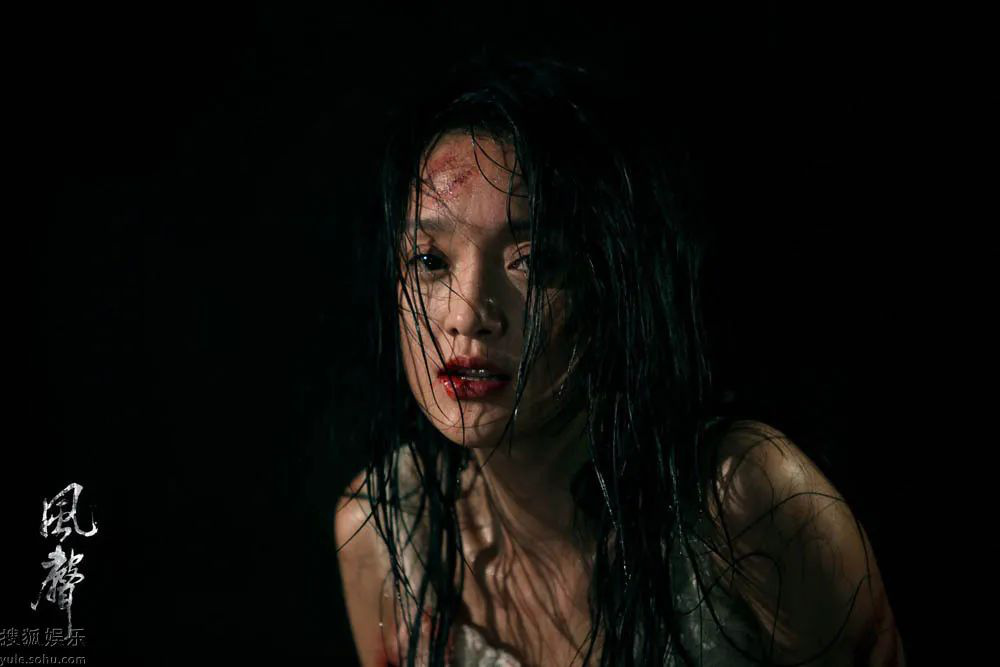
Zhou Xun plays Gu Xiaomeng.
Many punishments in this film were "created" by the filming team, and there was no specific description in the original work. Mai Jia said that when writing "The Wind","From the story level, the design is a thrilling escape magic, but in a sense, I want to consider how deep a person’s intelligence is and measure the strength of a person’s belief through the’ secret room and imprisonment’."
Chen Guofu once told reporters that torture was designed on the basis of historical facts by the director and the team who did a lot of investigation in the early stage of filming. Among them, Wu Zhiguo’s "acupuncture" is the creation of the script, because Chen Guofu himself is afraid of acupuncture. "This acupuncture looks horrible, because there is a lot of room for imagination, based on the traditional meridian medicine in China."
Director Chen Guofu had been the artistic director of Huayi before filming Wind. He said frankly that Gao Qunshu was invited to co-direct The Wind because, despite coming to the mainland for many years, he still couldn’t grasp the tastes of the mainland audience and "could not breathe together".
"I didn’t know when I would start shooting a new movie. I have produced many movies over the years, but I have never directed a movie myself. It has been seven years since I last made a movie. Telling stories in Taiwan Province is familiar to me, but not in Beijing. I spent a lot of time getting familiar with the environment and brewing emotions. "
"Wind" successfully harvested 200 million box office in the National Day file of that year, ahead of other films’ box office results. Different from other main melody films, under the division of commercial films, the values that main melody films should have are well expressed.
Gao Qunshu said, "Nowadays, China’s films are extremely short of mainstream values, and spy films or anti-feature films represent the mainstream values that are missing and urgently needed in this era-a belief and persistence. "He believes that as a new genre film, the spy war has just begun.
In fact, a few years after The Wind, there were indeed several spy war movies released one after another, such as Qiu Xi, Dongfeng Rain, Listener, and Taking the Tiger Mountain Outward, but on the whole, they were not as enthusiastic as The Wind.
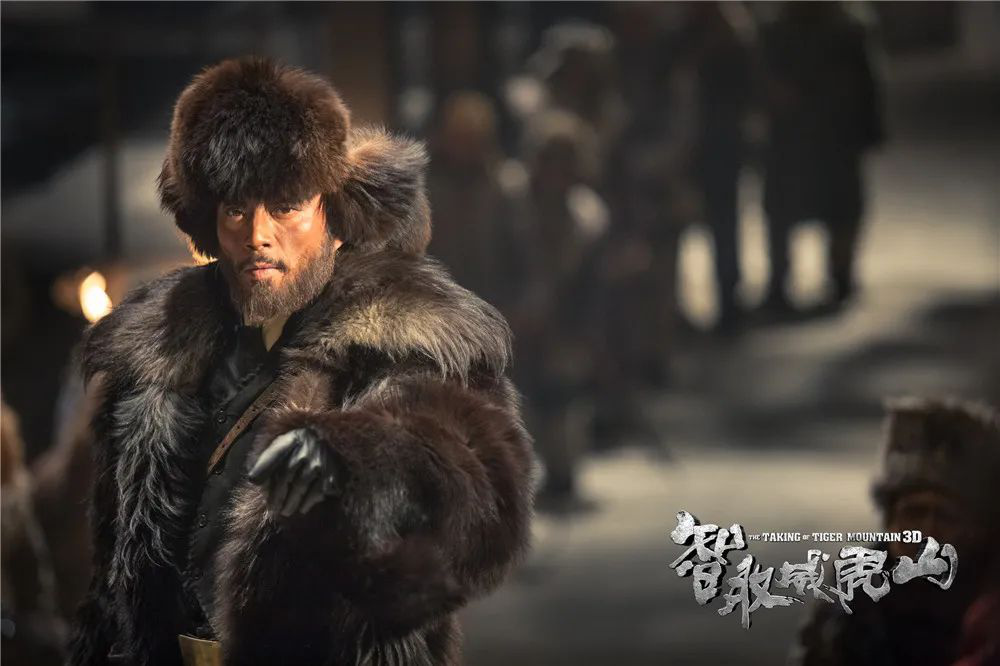
"Outwit Tiger Mountain" Zhang Hanyu
After the release of "Taking the Tiger Mountain Outward" in 2014, only in 2017, the Secret War starring Aaron Kwok, Zhao Liying and Hans Zhang had a certain volume, and there was no spy war movie with attention after that. The "spy war film" seems to have entered a silent period again.
In an interview, Chen Guofu once said that he was not optimistic about the popularity of spy films: "I don’t think domestic spy films can become a trend, and it is hard to imagine a trend. Because spy TV dramas have been swarming, it should not happen again in movies. "
In essence, it is much more difficult to create a script with the theme of spy war than other types of works, and the film and television drama with the theme of spy war must pass the national security review, and the review is relatively strict, so it is not easy to pass. The film and television dramas are still the same, and the film-related censorship is more stringent, which may be one of the reasons for the decrease of spy films in recent years.
In this case, the appearance of Above the Cliff made up for the vacancy of spy war movies in recent years. Like the 2009 "Wind" presented the 60th anniversary of the founding of the People’s Republic of China, "Above the Cliff" is also a film presented to commemorate the "100th anniversary of the founding of the Party".
The story of Above the Cliff can be regarded as the predecessor of the classic spy drama Cliff. It tells the story that in 1930s, four communist party agents who had received special training in the Soviet Union returned to China to carry out a covert operation codenamed "outrat". In order to complete the task, four people successfully escaped and fought bravely with the enemy.
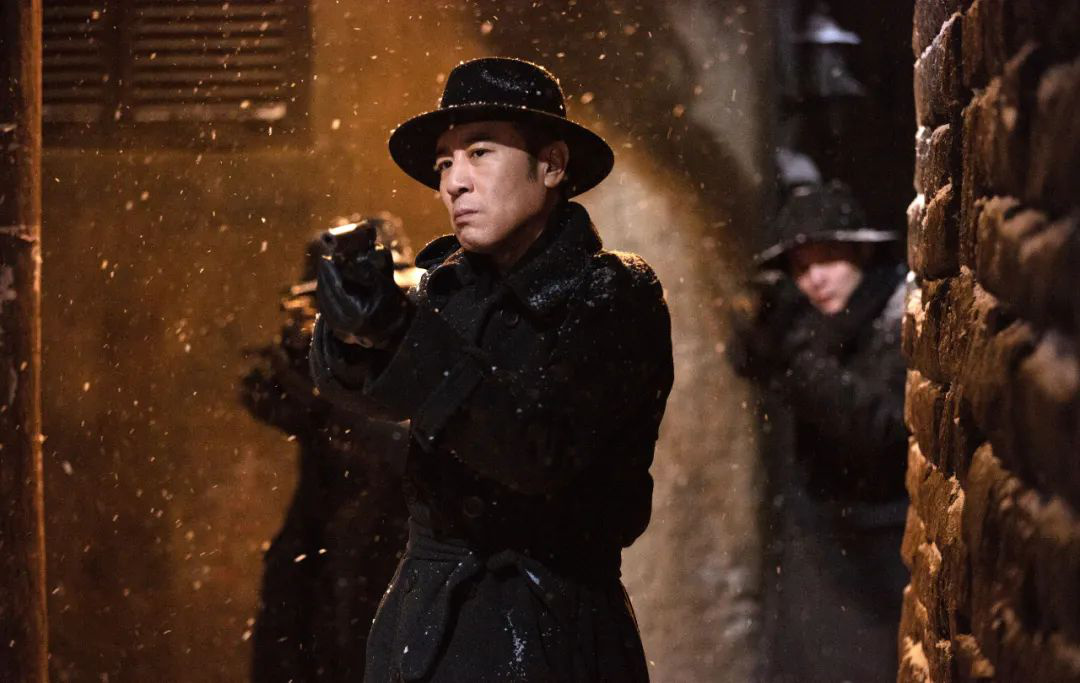
Above the Cliff, Yu Hewei
Emperor Huang, the film producer, found Zhang Yimou to cooperate after the project was prepared for half a year. At first, the team thought it over, aiming at the "unsung heroes" who died during the war.
In Zhang Yimou’s view, the plot design of spy war is no longer new to the audience. He hopes that Above the Cliff can make a breakthrough in genre films on the premise of telling good stories.
In addition, the team also hopes to create a spy film with unique aesthetic temperament. As a professional photographer, Zhang Yimou has rich experience in film aesthetics.
The background of the story is set in Harbin in the 1930s, so "cold" is extremely presented in the film. Lianglin, general manager of Emperor’s film production and project development, said that Zhang Yimou demanded that the whole film must be filmed in real scenes, and all the film crews went to the northeast snowfield to shoot in extremely cold places, and all the problems they would face in extreme weather were encountered by the film crew.
The reason why there is such a shooting requirement is because Zhang Yimou thinks that "spy movies should be cool", so he uses the tone of black, white and gray. In winter, white snow and extremely cold weather produce hot emotions, extremely hot hearts and passions, which is a contrast. It was settled at that time, and this taste is interesting. "
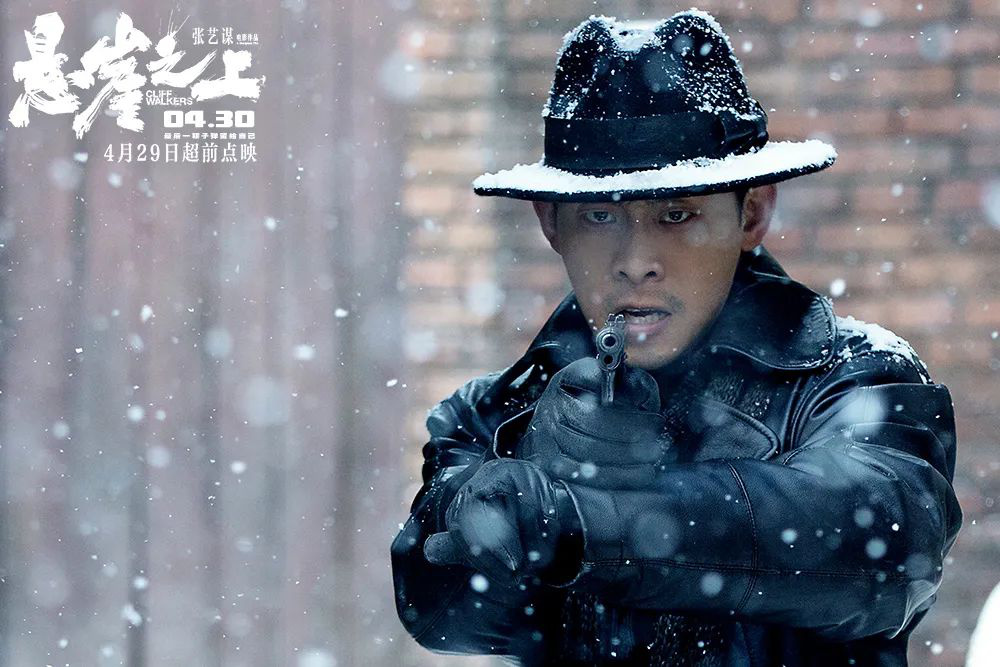
Above the Cliff, Zhang Yi
In On the Cliff, Zhang Yimou uses his best metaphor. The difficult and cold geographical environment also indicates that spies have been living in a cruel and dangerous reality.The "cold" in this image can form a sharp contrast with the "hot" in people’s will.
In narrative, Zhang Yimou thinks: "The core of genre films is stories, but it is by no means just telling stories." Therefore, "Above the Cliff" did not use the usual routine of spy movies, and in the middle of the film, the identity of our latent personnel was revealed. Let the audience continue to watch the movie under the condition of knowing the "card" and create a more tense heart rhythm.
This kind of plot arrangement makes it more difficult for the film to tell stories, but Zhang Yimou did not focus all the film on the suspense of the story, but paid more attention to excavating "human nature". For example, Chu Liang inadvertently exposed Xiaolan’s identity because he was worried about her safety. Zhang Xianchen was caught by the enemy because he was looking for his long-lost child.
Such a plot expresses the core of "home" under "country" more truly. Underground workers also have a reluctance to their lovers and a concern for their families."Heroes are ordinary people."Such a sacrifice is more touching to the audience.
Lianglin thinks "Above the Cliff" is a very unique story. "Compared with its classic predecessor, the screenwriter has given it a richer level of humanity."
After Above the Cliff, will it open a new chapter in spy war movies?

1. An analysis of the narrative breakthrough of China’s contemporary spy war movies, Zhang Jian
2. Research on Chinese mainland’s Anti-Special Films in the Seventeen Years, Li Yunfeng.
3. The genre evolution and image presentation of China spy war movies in 70 years in New China, He Peng.
4. Research on the image of female spy in China’s anti-feature films in the "Seventeen Years", Zhang Shuqiong.
5. The value of "Above the Cliff" lies in Zhang Yimou’s escape from all the "frames" and his welcome to China’s film coverage.
6. From "Anti-spy" to "spy war": a brief history of "spy war drama" in mainland China since the founding of the People’s Republic of China, with a historical profile.


